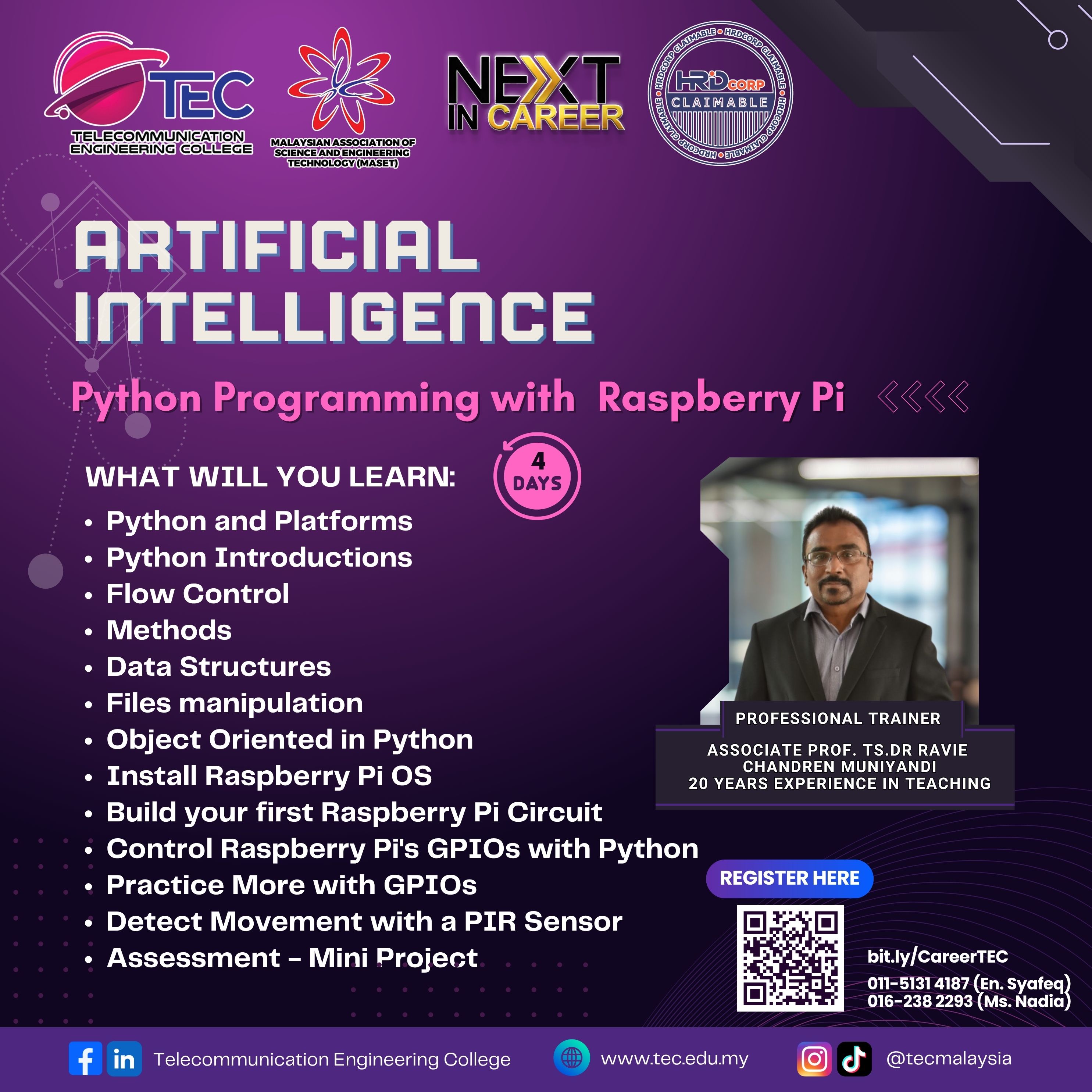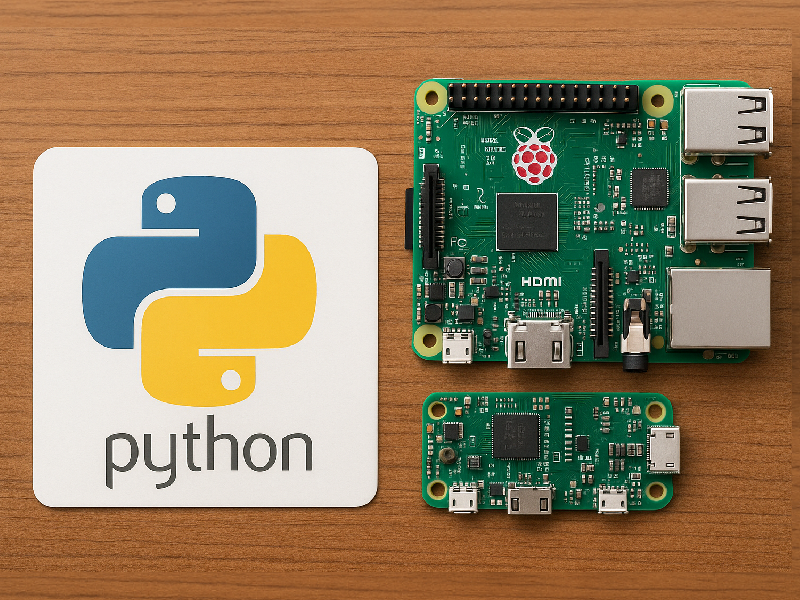This course equips educators and learners with the skills to explore Artificial Intelligence (AI), Python programming, and hardware integration through real-world applications. Participants will gain hands-on experience in Python, study core AI topics such as machine learning, data analysis, and neural networks, and apply these in both teaching and personal projects. The course includes practical work with Raspberry Pi, allowing learners to build and control circuits using Python, promoting interactive and problem-based learning. By combining theory with applied software and hardware tasks, it supports skill development in areas like engineering, IoT, and data science, preparing learners for future careers or innovations.
Learning Outcomes
Who Should Take This Course?
This course is ideal for educators, students, and professionals who want to explore the practical applications of Artificial Intelligence (AI), Python programming, and hardware integration. Whether you're teaching, learning, or working in fields like engineering, data science, or IoT, this course will help you develop hands-on skills in AI, machine learning, and coding with Raspberry Pi. It’s also a great fit for those interested in building real-world tech projects, solving problems through programming, or preparing for future careers in smart technologies.
MODULE 1 - Python and Platforms
MODULE 3 - Flow Control
MODULE 5 - Data Structures
MODULE 6 - Files Manipulation
MODULE 7 - Object Oriented in Python
MODULE 8 - Install Raspberry Pi OS
MODULE 9 - Build your first Raspberry Pi Circuit
MODULE 10 - Control Raspberry Pi’s GPIOs with Python
MODULE 12 - Practice More with GPIOs
Upon successfully passing the examination for this course, participants will be awarded a certificate, an example of which is shown below.
.jpg)
Artificial Intelligence (Python Programming with Raspberry Pi)

